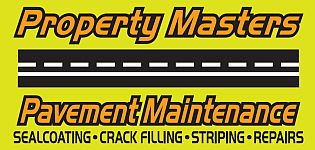We are a Full Service Pavement Company
207-774-0086
Owner, Joe Brenner
Cell: 207-329-7879
Honest, Prompt Reliable Service | Many References Available | A Trusted Name Since 2003
Owner is Usually On Site | We Stand Behind Everything We Do
Seal Coating Frequently Asked Questions
Seal Coating is the process of applying a coal tar emulsion over an asphalt pavement to protect from the damaging effects of the environment, including moisture and ultraviolet oxidation. Protecting pavement with seal coating has basically the same effect as using sun screen on your skin or varnish on wood because it slows down the destructive effects of the climate. Seal coating also fills minor voids in the surface. Other benefits include creating uniform color and appearance.
Q: Why should I have my pavement seal coated?
A: Besides making your pavement look new again, pavement sealer protects pavements from the destructive elements of the weather, gas, oil, antifreeze, and many other chemicals that could damage the paved surface.
Q: How soon can new pavement be seal coated?
A: Newly paved asphalt surfaces should not be sealed until they have sufficient time to cure. Curing allows the excess oils that are always present in new asphalt to diminish through a process called oxidation. We usually recommend that the asphalt be allowed to cure for one year prior to seal coating for the first time and then sealed every on to three years.
Q: What is Crack Sealer?
A: Crack sealer is an elastic material designed to seal cracks against moisture which is one of the leading causes of pavement failure.
Q: How often should pavement be seal coated?
A: Asphalt pavement should be sealed every one to three years depending on the amount of traffic surfaces that receive light traffic like home driveways would require sealing less often than parking lots receiving moderate to heavy traffic.
Q: Will the pavement sealer cover oil stains?
A: Pavement sealer will not adhere to oil stains unless the stain is treated with an oil stain primer prior to seal coating.
Q: What causes scuff marks on newly sealed pavement?
A: Scuffing of the newly seal coated surface may occur on hot days. Scuffing is normal and temporary usually occurring within the first month after the seal coating has been applied. The best way to minimize scuffing is to prevent sharp turns when driving a vehicle on the surface.
Q: How long does it take the material to dry?
A: This depends on how many coats are applied and the weather conditions. Plan on a full 48 hours before driving on the pavement..
Q: How should pavement sealer be applied?
A: Seal coating can be applied either by spraying or squeegee. We usually apply the sealer with a squeegee on smaller areas such as home driveways. Spraying of pavement sealer is usually reserved for larger driveways and open areas such as parking lots and roadways. Either method will result in a quality, long lasting coating.
Q: Will pavement sealer make the pavement slippery?
A: No! Pavement sealer will not make the surface slippery. We use a sand slurry mix of pavement sealer. Silica sand is mixed in with our pavement sealer resulting in a non-slip surface.
Q: How do you block off sections in a parking lot?
A: Developing a plan to section off the parking lot to maintain traffic flow through the project is critical to its success. Tenants must be informed throughout process so they can plan accordingly. Each area is blocked off with orange traffic tape, barricades and or traffic cones. Each parking lot is different so the sectioning plan and barricading plan must be customized to the needs of the tenants and the property manager.
Q: Why are there tire marks showing on a newly sealcoated parking lot?
A: The material dries to the touch in a few hours but it takes several days to fully harden, especially in the hot sun. Expect power steering marks as the sand is sheared away from the coal tar but over time these marks will dissipate..
Q: Why is sand important?
A: Sand is added to the coal tar at the rate of 3-5 pounds per gallon of concentrated coal tar. It is used to prolong the wearing life of the material and provide skid resistance but it is important to have the right particle size to work effectively.
Property Masters
Phone: 207.774.0086 Fax: 207.774.0096
Info@PropertyMastersME.com
69 Four Winds Road
Portland ME 04102



